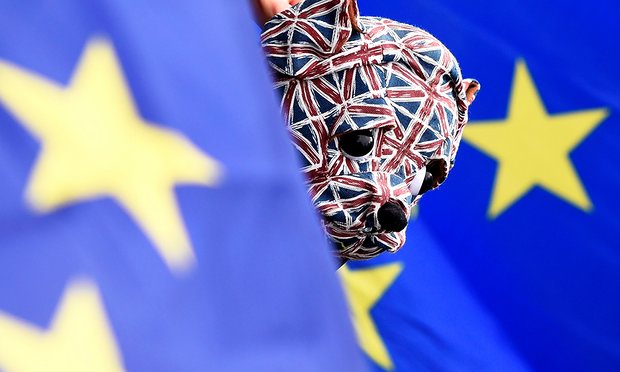Managing Britain’s exit from the European Union is such a formidable and complex challenge that it could overwhelm politicians and civil servants for years, senior academics have warned.
Theresa May has announced she will trigger article 50 – the two-year process of negotiating a separation from the EU – by the end of March next year. The government will also publish a great repeal bill, which will transfer all EU-originated laws into British law, so that MPs can decide how much they want to discard.
A report from The UK in a Changing Europe, an independent group of academics led by Prof Anand Menon of King’s College London, warns that this will only be the start of the process of extricating Britain from the EU and establishing new relationships with other member states.
“Brexit has the potential to test the UK’s constitutional settlement, legal framework, political process and bureaucratic capacities to their limits – and possibly beyond,” Menon said.
The group of experts, commissioned by the Political Studies Association, found that identifying and transposing the legislation to be included in the great repeal bill – and then deciding what to keep and what to ditch – will be a daunting task for civil servants.
They also warn that while article 50, as set out in the Lisbon treaty, concerns the terms of a divorce with the rest of the EU – including what share of EU liabilities the UK should take on, for example – it is unclear whether the process can allow for parallel negotiations on Britain’s future status.
And they suggest the repatriation of decision-making in key policy areas including agriculture, the environment and higher education to Britain from Brussels could affect the balance of power between Westminster and the devolved parliaments – another major constitutional headache for politicians.
Pro-Brexit ministers, including the foreign secretary, Boris Johnson, and Brexit secretary, David Davis, have tended to play down the difficulties of extricating Britain from the rest of the EU.
But Menon said: “An irritating aspect of the current debate is the tendency of Brexiters to accuse those who warn of difficulties of ‘talking Britain down’. It’s a good line but a pathetic argument. Since when was rational debate a bad thing? Forewarned, surely, is forearmed, and this report will help identify potential stumbling blocks ahead.”
On the issue of who at Westminster is in charge of the Brexit process, the academics say it will inevitably be Theresa May.
The study comes as the government’s pledge to protect Japanese carmaker Nissanfrom the potentially unfavourable effects of Brexit leads to calls from other industries for their causes also to be prioritised.
Stephen Dorrell, the former health minister, warned against sacrificing UK life sciences, saying the wrong “hard Brexit” deal could affect Britain’s access to new drugs.
“Alongside the motor industry and financial services, the life science sector is an essential British interest which must be a priority for ministers in their Brexit negotiations,” he said.
Dorrell, who has co-authored a report with Luke Tryl published by Public Policy Projects, added: “Science and science-based industry is a global activity and we face a simple choice: we either participate in full in that global scientific community or we prejudice a key British national interest.”
Tryl said that “simple commercial reality” meant companies could prioritise the European market for launching products if there were restrictions affecting the UK.
The study comes as parliament once again discusses the issue of the UK’s membership of the customs union, in an adjournment debate tabled by Helen Goodman, the Labour MP and member of the treasury select committee.
She said: “Leaving the customs union would be disastrous for the UK and our manufacturing industry. Outside of the customs union, we may have to pay tariffs and would certainly have to comply with the rules of origin – a bureaucratic procedure to show where all the components in a product come from – when we export into the EU market. The tariffs vary – many are around 5%-10% – but the OECD estimates that the rules of origin can add 24% to costs.” She hit out at “hard Brexiteers” such as Liam Fox, the trade secretary, saying they were being wildly optimistic by relying on deals with third-party countries.



























